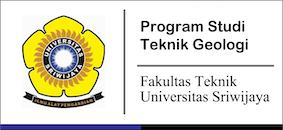Estimasi Sumberdaya Dan Cadangan Dengan Metode Ordinary Kriging Pada Blok Eksplorasi Cahaya Prima Kausa Di PT. Cinta Jaya (Gasing Grub) Desa Tapunggaya, Kecamatan Molawe, Kabupaten Konawe Utara, Provinsi Sulawesi Tenggara
Abstract
PT. Cinta Jaya (Gasing Grub) merupakan perusahaan bidang pertambangan Nikel Laterite yang merupakan anak perusahaan dari PT. Gasing Sulawesi. Perusahaan ini telah melakukan kegiatan eksplorasi lanjut guna mengetahui volume, densitas, dan juga kemenerusan kadar pada blok eksplorasi cahaya prima kausa. Kegiatan eksplorasi dilakukan dengan melakukan pemboran inti dengan jumlah 36 titik pengeboran dengan jarak 50 meter dengan luas 8 ha. Penelitian ini dilakukan dengan menentukan domain geologi dari perlapisan nikel laterite (Limonite, Saprolite, dan Bedrock) dengan pendekatan geostatistik. Metode yang digunakan yakni Ordinary Kriging dengan penentuan tipe variogram yang telah ditentukan berdasarkan Parameter Variogram. Hasil perolehan sumberdaya pada lapisan limonite sebesar 726,784 m3; lapisan Saprolite 398,336 m3; untuk perolehan cadangan Low grade sebesar 14,080 m3; Medium Grade 222,208 m3; dan Hight Grade 176,128 m3












